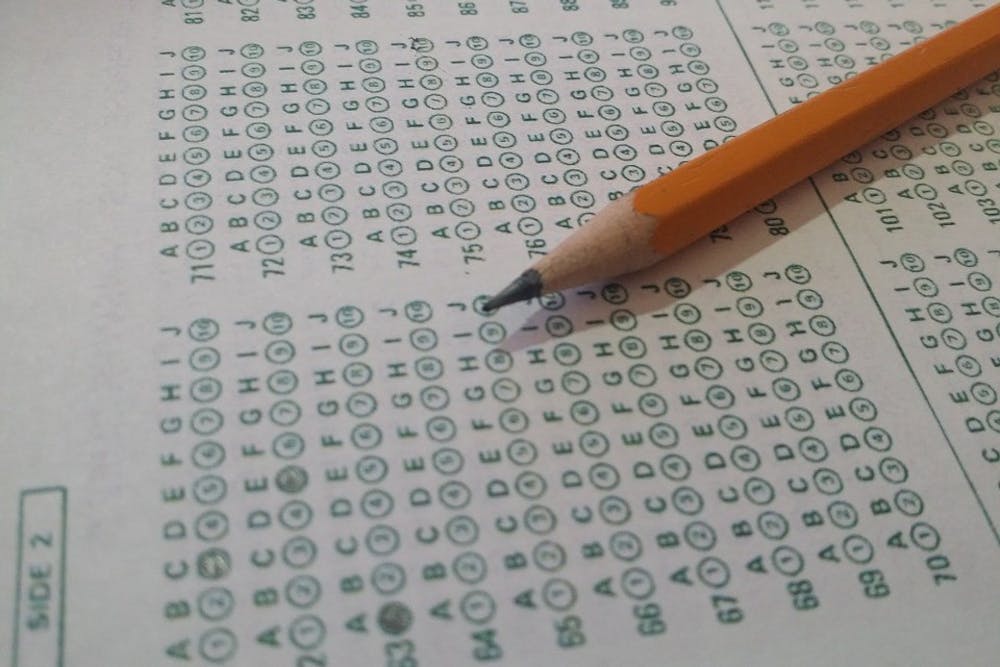
This weekend represents the first time high school students will be able to take the new and revamped SAT.
This Saturday, high school juniors around the country will rise early to tackle the SAT Reasoning Test. But for the first time since 2005, it’s a different test.
On its website, the College Board says “the new test is more focused on the skills and knowledge at the heart of education,” measuring, “what you learn in high school,” and “what you need to succeed in college.”
To accomplish this, the test is supposed to have more relevant and familiar vocabulary words, and it will require students to do more analysis with an evidence-based reading and writing section. Every test will also include at least one passage from a United States founding document, like the Declaration of Independence or the Federalist Papers.
The last time the SAT changed was in 2005, when the essay section was added, analogies were eliminated and the math section was expanded to include concepts covered in Algebra II classes. The total points possible also increased from 1600 to 2400.
The new test will go back to being scored on a 1600 scale, and students will also no longer be penalized for choosing the wrong answer. This means students now have nothing to lose when guessing the answer to a question.
“This is the biggest overhaul the SAT has ever made,” Director of college counseling practice Ivy Coach Brian Taylor said.
For current high school students, these changes might be hard to adjust to, especially in the first year of the new SAT’s release.
Taylor believes that students in the next couple of years will be impacted most since they do not have as many resources to prepare for taking the test.
“The problem for this year is that there aren’t old tests,” Taylor said. “The best way to prep for SATs or ACTs is to take old practice tests, but the new SAT has no old tests out there.”
As a result, Taylor thinks that students this year will start to look elsewhere for their testing requirement.
“Many students, this year in particular, I suspect, will turn to the ACT,” Taylor said.
The College Board has also made the essay optional in the new version of the test. Last year, just prior to the new SAT’s release, Penn announced that it would also be making the essay portion of the SAT and ACT optional for applicants.
Despite this, Taylor thinks that students applying to Penn should still be taking the essay portion, which will require students to analyze a passage instead of the old essay, which was based on a prompt. He said that even though Penn says it’s optional, he thinks it’s still expected.
The Daily Pennsylvanian is an independent, student-run newspaper. Please consider making a donation to support the coverage that shapes the University. Your generosity ensures a future of strong journalism at Penn.
DonatePlease note All comments are eligible for publication in The Daily Pennsylvanian.








